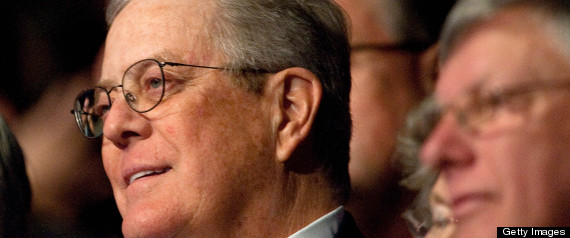Those who believe in a popular conservative economic theory are also more likely to not believe in science, according to a recent study.
People who endorse free-market economics -- an economic theory, which argues the markets regulate themselves and work better without too much government intervention -- are more likely to deny climate change, according to a study published last month in Psychological Science.
Based on a survey of climate blog visitors, the researchers also found that those who endorse free-market economics are more likely to reject other widely accepted scientific theories. About 97 percent of climate researchers believe climate change is real, according to a 2010 study from the University of Illinois.
“Endorsement of free-market economics predicted rejection of climate science,” the researchers wrote. “Endorsement of free markets also predicted the rejection of other established scientific findings, such as the facts that HIV causes AIDS and that smoking causes lung cancer.”
Some prominent free-market backers have been known to deny climate change in what critics argue is an aim to stop the government from placing stricter environmental regulations on businesses. The billionaire Koch Brothers have funded groups that push free market ideology as well as groups that deny claims that global warming is taking place and that it’s caused in large part by humans.
Still Ronald Reagan, one of the most famous supporters of free-market economics, made moves to curb humans’ detrimental effect on the environment during his second term as president, according to a November New York Times op-ed by Cass Sunstein, a former Obama Administration official.
Reagan became the prime leader in an international push to phase out ozone-depleting chemicals, despite his skepticism of environmental regulations, according to The NYT piece. That’s because Regan’s economists discovered that stopping manmade harm to the ozone -- a phenomenon that is different, but not entirely unrelated to climate change -- would cost a lot less over the long term than letting it go on.
Original Article
Source: huffingtonpost.com
Author: --
People who endorse free-market economics -- an economic theory, which argues the markets regulate themselves and work better without too much government intervention -- are more likely to deny climate change, according to a study published last month in Psychological Science.
Based on a survey of climate blog visitors, the researchers also found that those who endorse free-market economics are more likely to reject other widely accepted scientific theories. About 97 percent of climate researchers believe climate change is real, according to a 2010 study from the University of Illinois.
“Endorsement of free-market economics predicted rejection of climate science,” the researchers wrote. “Endorsement of free markets also predicted the rejection of other established scientific findings, such as the facts that HIV causes AIDS and that smoking causes lung cancer.”
Some prominent free-market backers have been known to deny climate change in what critics argue is an aim to stop the government from placing stricter environmental regulations on businesses. The billionaire Koch Brothers have funded groups that push free market ideology as well as groups that deny claims that global warming is taking place and that it’s caused in large part by humans.
Still Ronald Reagan, one of the most famous supporters of free-market economics, made moves to curb humans’ detrimental effect on the environment during his second term as president, according to a November New York Times op-ed by Cass Sunstein, a former Obama Administration official.
Reagan became the prime leader in an international push to phase out ozone-depleting chemicals, despite his skepticism of environmental regulations, according to The NYT piece. That’s because Regan’s economists discovered that stopping manmade harm to the ozone -- a phenomenon that is different, but not entirely unrelated to climate change -- would cost a lot less over the long term than letting it go on.
Original Article
Source: huffingtonpost.com
Author: --

No comments:
Post a Comment